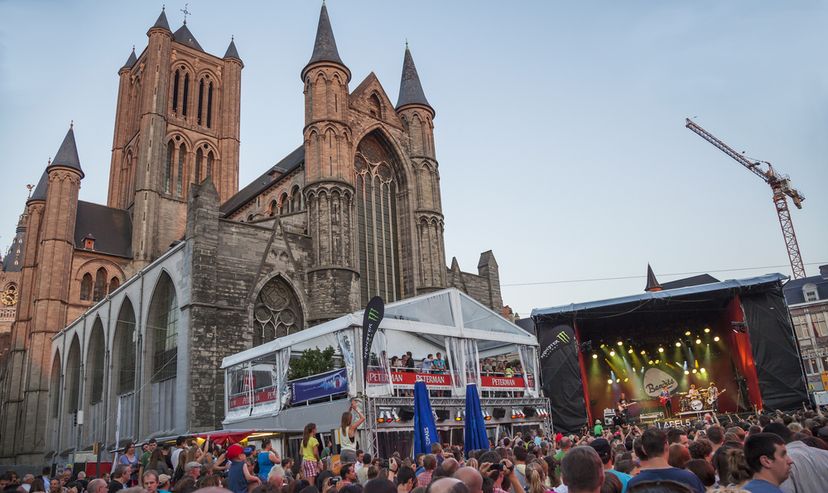
The United Nations Educational, Scientific, and Cultural Organization is well known for its designations of World Heritage Sites. For the music and travel lovers it also has a Cities of Music list that is completely fascinating and full of surprises. Fame and size are not on the list of criteria, hence New York and Berlin, two great musical centers that didn’t make the cut. The list rather focuses on cities with a distinguished musical history endemic to local, national, and world culture which have music in the DNA. The qualifying cities also make music an important sector of the economy in terms of concerts, technology, and tourism. They also share a serious, comprehensive musical educational component and actively promote their specialties to ensure their music thrives going forward and remains an important part of the culture and economy. For the traveler, these are meccas of live music, most of which have stunning venues from medieval to postmodern. It is a thought-provoking list without an obvious name. By the end of it, you might find yourself looking at flights to places you may never have heard of, or even just imagining the scenes and settings is time well wasted.
Advertisement
9. Seville, Spain
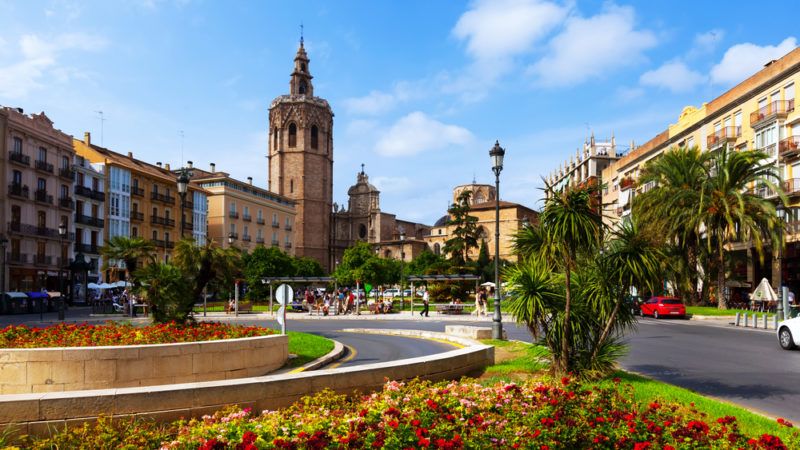
What better place to start than the city that is the setting of the two greatest operas of all time, Rossini’s Barber of Seville and Mozart’s Marriage of Figaro. These are the stuff of musical legends, but the heart and soul of musical culture and a touchstone of the Spanish identity is flamenco and it bears musical influences from all the cultures that have been part of the region’s history. For example, Spanish folk music, Arabic Byzantine and Christian and Jewish religious music. Seville’s most famous and hugely popular music festival, the Bienal de Flamenco, is world-renowned. The greatest flamenco interpreters stage traditional and original works in the sublime beauty of the city’s architectural masterpieces making a feast for all the senses; Real Alcazar the 9th-century palace. And the ancient Roman ruins, like watching great works of art in great works of art, but the most critically acclaimed takes place in the city’s nightclub district called Tablao El Arenal with award-winning artists performing a wide variety of flamenco’s different palos or styles.
8. Mannheim, Germany
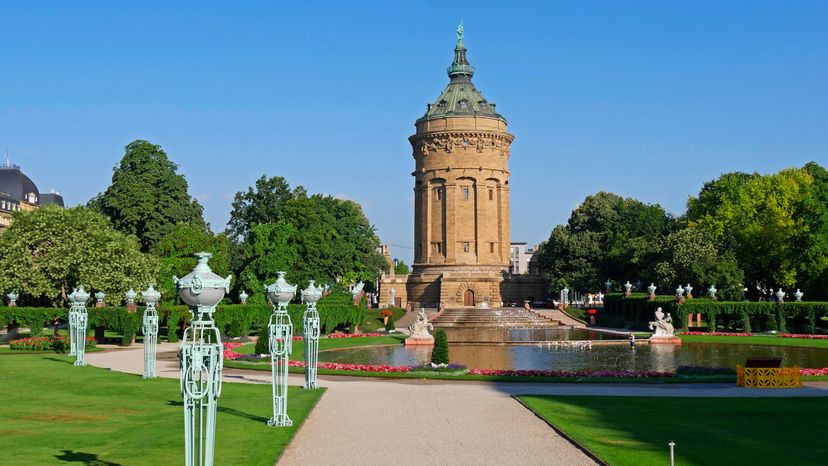
Mannheim is a dynamic multicultural center of creativity. The aging rock group Mannheim Steam roller is American, but their name derives from one of many musical innovations of the Mannheim school of Composers of the 18th century. The Mannheim Roller is a kind of crescendo developed by the large orchestra at the court of Charles III Philip. Mannheim’s influences can be found in the works of Beethoven and Mozart. The musical pedigree here runs deep. UNESCO notes the city has been “a long-standing leader and innovator, with an extraordinary infrastructure for music”. It is a deliberate policy initiative that sees music having economic benefits not just within its own business, but for tourism and technology sectors. However, don’t think it’s all about classical music. Mannheim is still widely regarded as one of Germany’s musical centers. The Mannheim Pop Academy offers a Bachelor’s Degree in pop music while the Time Warp festival has the biggest names in techno music.
7. Hannover, Germany
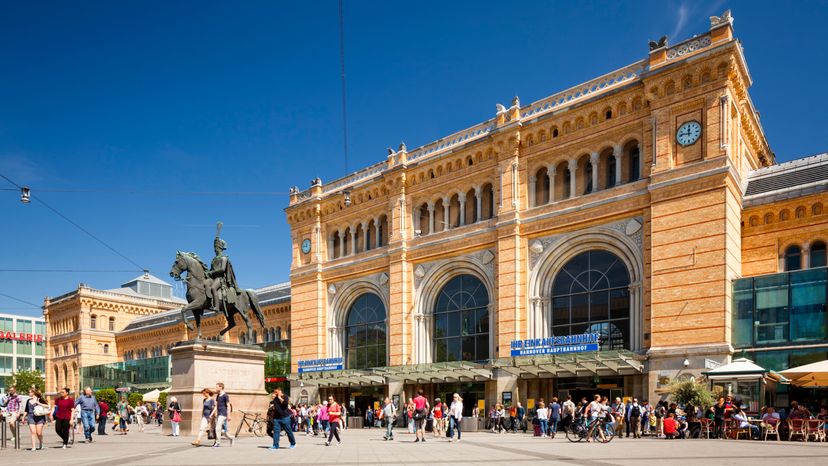
It is a city of festivals and cabaret. The heavy metal band Scorpion, one of Europe’s most famous is from Hannover. The people of Hannover say there at the center of the Land of Music and it’s not a far-fetched claim. The hugely influential Hanover University of Music, Drama, and Media attracts gifted students from around the world who on their own perform 500 public concerts a year. The faculty includes Departments of Chamber Music, Contemporary Music, Ancient Music, Jazz|Rock|Pop, and Musicology. They teach every orchestral instrument except, for some reason, the harp. MUSIC is an institution of graduate study for research and development in emerging musical technologies. Also, Hannover is where the first music cassette was produced, the first CD was pressed and the first vinyl was invented.
6. Hamamatsu, Japan
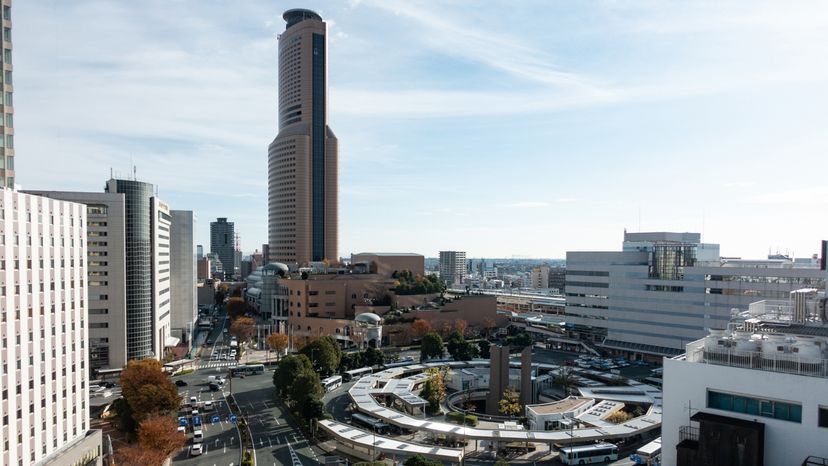
Hamamatsu is a city of less than a million people and is located about 100 miles south of Tokyo along the Pacific coast. The makers of some of the world’s finest musical instruments, from grand pianos to synthesizers were founded here. Music is a huge part of the city’s cultural and business community – Roland, Yamaha, and Kawai still have their corporate headquarters in Hamamatsu. In fact, no other place on earth maybe this musical. The multiple stage Concert Hall is opulent and state of the art. There are 10 music festivals that occur here each year, two of the biggest are the internationally sanctioned Hamamatsu International Piano Competition and the Shizuoka International Opera Competition, both attracting major talent worldwide. The Hamamatsu Academy of Music and Shizuoka University of Art and Culture train students in everything from playing instruments to concert hall management. The Museum of Musical Instruments has an amazing collection from different eras and cultures. Part of its mandate is “fostering cross-cultural understanding and cultural diversity through music”. As a last tribute to its musical pedigree, it is likely the only Asian city with a statue of a Polish composer, but it’s a copy of the famous art Nouveau depiction of Frederic Chopin in Warsaw, the sister city of Hamamatsu.
Advertisement
5. Ghent, Belgium
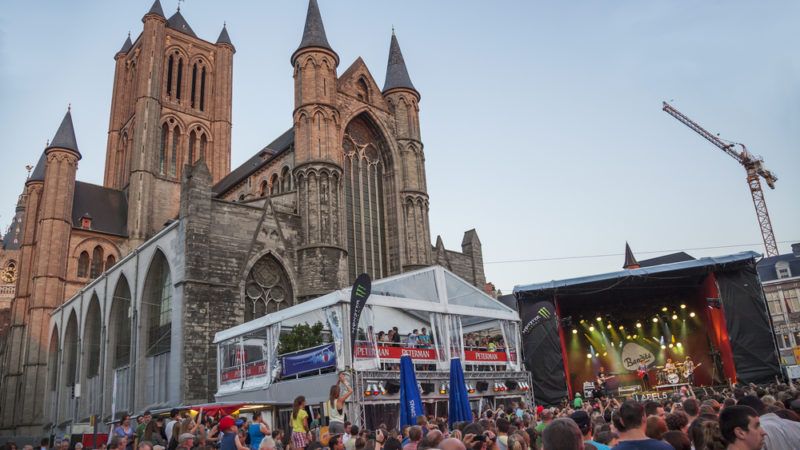
Most of Ghent’s North American reputation is based on it being the city in which England and the United States concluded the treaty that ended the War of 1812. It’s a city full of culture and art events offering a unique combination of a celebrated past and a lively present. Now it is an educational and artistic center, especially in the musical realm. There are two graduate schools that teach opera and musicianship. Ghent also has elegant avenues and canals and is called the City of Festivals (although come to think of it, so is Montreal). But Ghent’s goes back at least to 1843 when the Gentse Feesten (the “Festivities of Ghent”) began. The whole city becomes a series of concert stages for all kinds of music and entertainment. Each year you can find some of the world’s biggest jazz names here, as well as upcoming acts that are both Belgian and international. Last year 30,000 people visited as Ghent becomes a music lover’s Mecca. Hundreds of performers provide a varied mixture of classical, jazz, and world music. For the Festival of Flanders “The streets alongside Ghent’s waterways overflow with music, animation, art, and spectacle”. The Jazz Festival attracts the biggest name performers. Even the Film Festival is about music in film. It’s not just the variety it’s also the venues, along the city’s canals some of which date back to medieval days. Plus Belgians really do make the best fries in the world.
4. Glasgow, Scotland
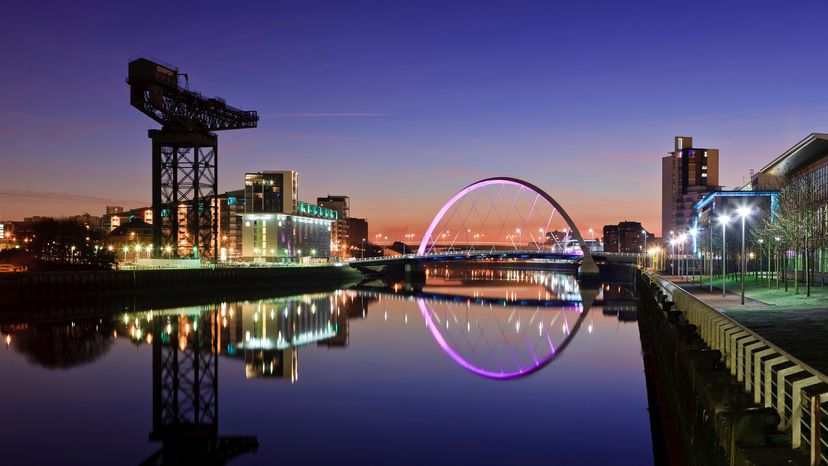
Of course, Glasgow would be home to the World Pipe (as in bagpipe) Band competition and the highly coveted winner’s trophy. But Glasgow is far more than that – it is an Old World city with a rich history filled with creative arts. Music is one of its most notable. For almost a century, St. Andrew’s Hall was one of the most celebrated musical venues in Europe. It was burned to the ground in 1962 by a careless smoker at a boxing match, but its reputation for musical excellence sustains to this day. With UNESCO as a partner, Scottish musical enthusiasts have written a book, Dear Green Sounds that tells the musical history of Glasgow through its historic venues as a walking tour. From the classical offerings at St. Andrew to perhaps less refined though no less memorable concerts from Frank Sinatra to Freddie Mercury. It is one of those places in which music is ingrained. Classical fans still lament the loss of St. Andrew’s, but it has kept up with time and fashion.
3. Brazzaville, Congo
In Africa it seems like music is not just for listening, it’s a cause for celebration. It’s an escape perhaps from the poverty in which too many of them live. The capital of Congo was there at the birth of soukous (from the French verb to shake) or Congolese rumba, a genre of mesmerizing high-speed dance and music that is an African cultural bedrock, ubiquitous across the continent and popular around the world. Music in Brazzaville is an aspect of their culture to conserve, teach and promote. It’s home to the African Music Council and the 2015 Pan-African Music Festival whose theme in 2015 was “dynamics of music in the diversity of cultural expressions”. Other major events include the FEUX DE BRAZZA (Festival of Lights), which is a blast as you would expect any African music event would be, especially amidst the charm of Brazzaville. But it has its serious side as well…its mission statement reads, in part, the safeguarding of African cultural traditions will ensure that through this festival, future generations will be the link that will perpetuate that culture”.
2. Bologna, Italy
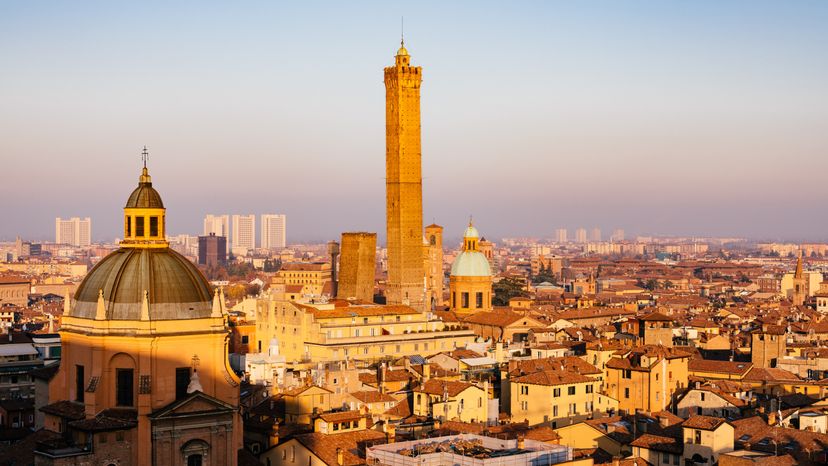
On its opera alone, Italy is a world musical superpower, but in terms of musical centers, fans usually think of Milan’s legendary opera house, La Scala, or perhaps the Venice of Antonio Vivaldi. UNESCO has chosen the ancient educational and culinary center of Bologna for its list, citing its “widespread promotion of the music sector” La Dota (The Learned) home to the oldest university in the world, dating from 1088. The University of Bologna was the first in the country to offer degrees in music and performing arts. Not to mention the music festivals! It seems the only festival missing from this city is a Congolese rumba festival. Classical, chamber, devotional, opera, ballet, blues jazz, even Jewish jazz. The target audiences start at the age of one. For music lovers, there is the additional attraction of events set in the glorious ancient city. Bologna has four major orchestras including one run by Claudio Abbado, one of the greatest conductors of his generation. But it’s not just the artistic history and culture, it’s the educational and community outreach that UNESCO favors with Abbado’s Orchestra Mozart works as music therapists in the health and social services field. Also, dress rehearsals are open free of charge to dozens of schools and cultural associations.
1. Bogotá, Colombia
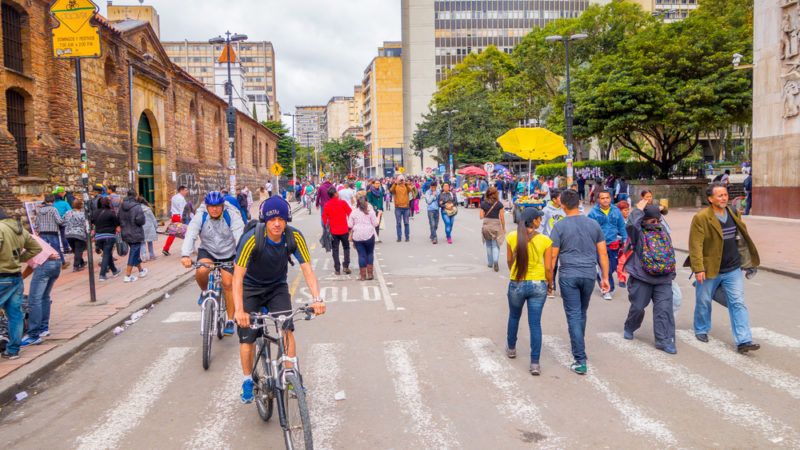
Columbia is undergoing a remarkable transition socially, economically, and architecturally as it is a creative city renowned for its rich music scene. The traditional and emerging forms of music are playing an intrinsic part in the change. The country holds 60 festivals every year, the biggest of which is “Festivales Al Parque” an eclectic display of everything from jazz, opera, hip hop, and salsa that over half a million people flock to see. In addition to hosting the “Festivales Al Parque”, Bogota has 500 live music venues where festivals occur annually. UNESCO says the city is an important center for the performance and cultivation of the following music forms: salsa, fusion, rock, opera, classic, chamber, electronic, pop, tropical, ranchera, hip hop, experimental, bolero, gospel, and Colombia’s own rich musical traditions can be heard. It has taken on the task as a regional cultural center to promote artists across Latin America and the Caribbean. Bogota is at the edge of the evolving public policy of using music as a cultural touchstone and lucrative engine of economic growth. The Bogota Music Market, created in 2012, has also become a notable platform for local and regional music agents. Additionally, the Chamber of Commerce is developing a Music Cluster in order to strengthen the city’s dynamic music sector.
Advertisement